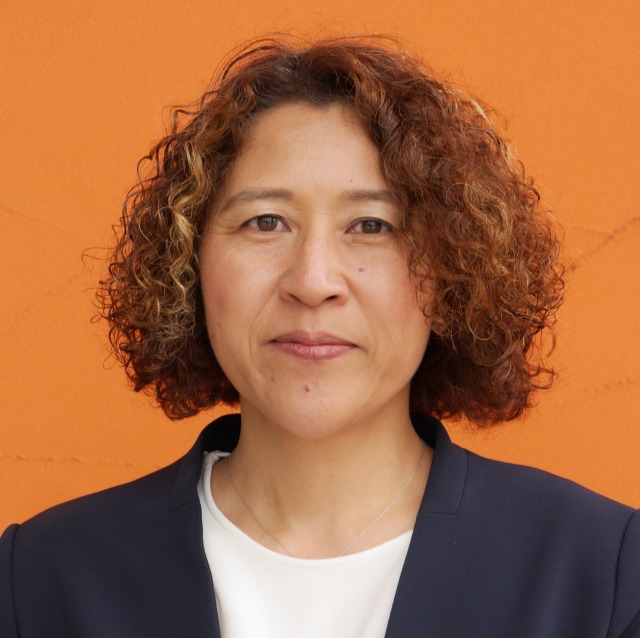The first Global Career Course of 2018 was held on May 7.
It was the first Global Career Course for the 9th grade students who participated. They gathered in the classroom with a thrilled expression. They talked excitedly.
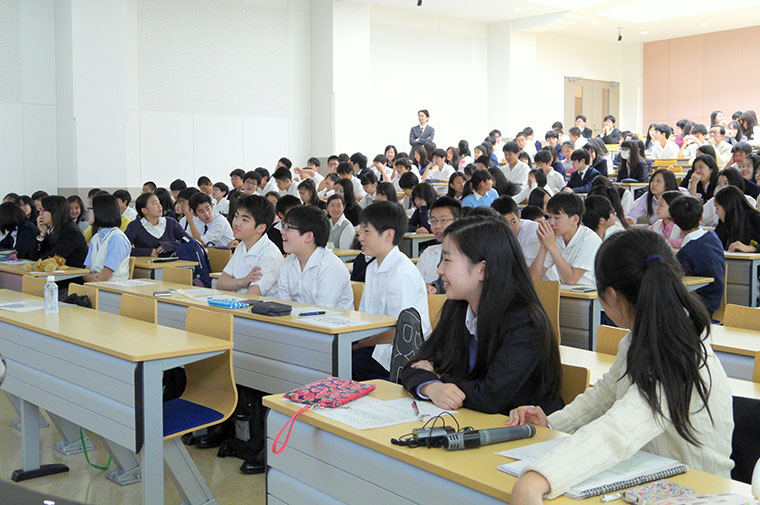
Tomomi Sekioka, who is a senior public relations manager at the International Monetary Fund (IMF), was welcomed as the first lecturer.
She talked about the role the International Monetary Fund (IMF) plays in the world and her work in public relations.
At first, she explained about the history of the IMF and its role in the world. She was talking while asking questions and giving examples, which made it easy for students to understand and therefore it attracted their attention.
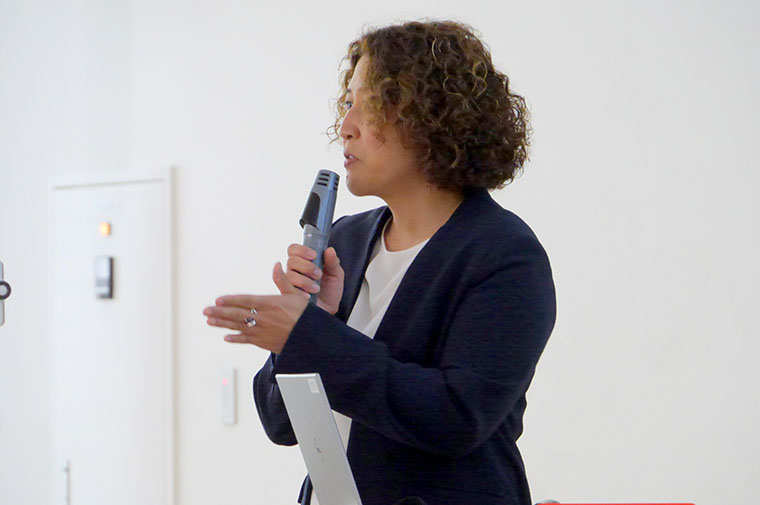
“The finance by the IMF to the countries in fiscal trouble is paid by member countries such as Japan. This means, it is not irrelevant to you all.” She said.
The Students learned that they are impacted by the IMF from things like commentary on surveillance (economic surveillance) to loans to technical cooperation. These are all roles that the IMF plays in the world. They listened to the lecture while being conscious of the relationship between the IMF and themselves.
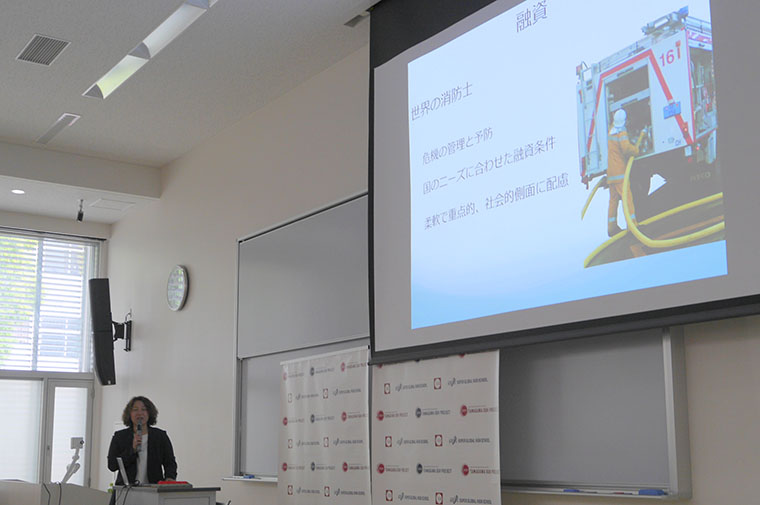
In addition, Ms. Sekioka told of the importance of thinking about “how we are being seen from outside countries” based on the viewpoints she gained in her experience as a reporter and in public relations in her previous job.
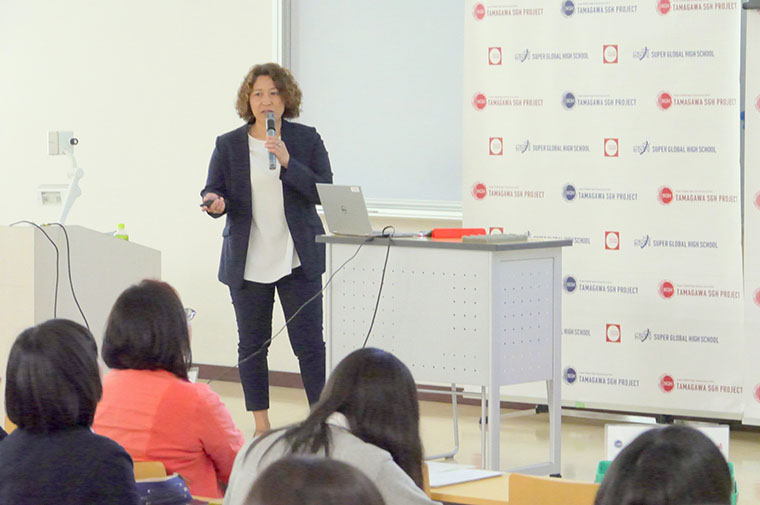
“Even if there is no such mandate in an organization, if you do not know the history, religion, or culture of that country, you may hurt people you are trying to help.”
As an example, she spoke of an advertisement that a creator made which attracted a lot of negative attention due to an unintentional expression of discrimination and using inappropriate data, she told the students of the importance of “thinking about how people seeing things will receive them” and “considering objectivity and reliability” when communicating something to many people.
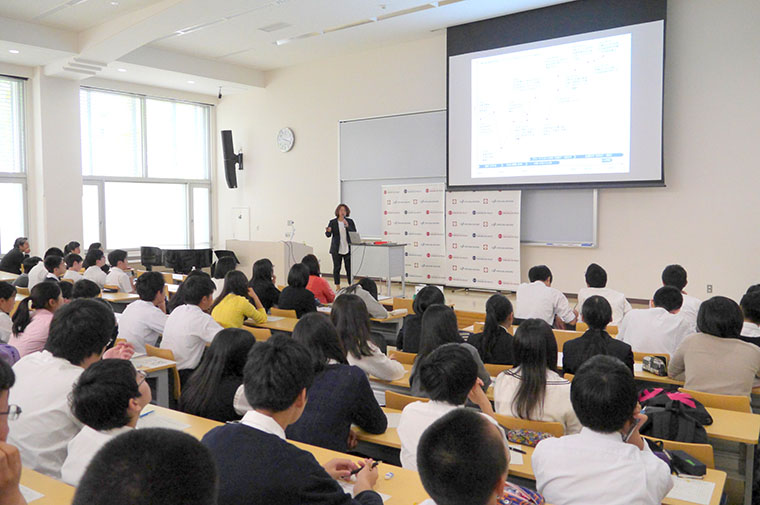
Also, when looking at “the viewpoint of objectivity and reliability”, she told she continues to feel “strangeness” often at seminars and conferences organized by Japanese organizations.
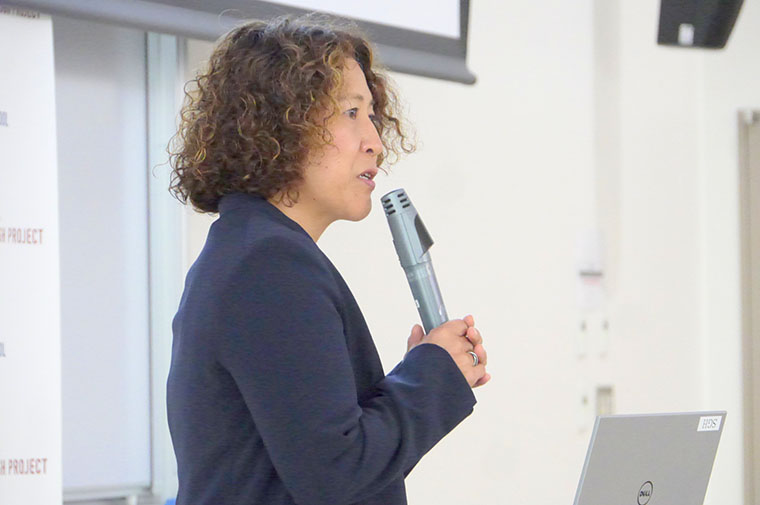
For example, there are times when the conference speakers, at conferences promoting the success of women, consist only of men. From this point of view, it remains questionable whether the opinions of women are truly respected.
Meanwhile, international organizations have chosen participants considering many attributes of participants such as gender and nationality. They invite speakers from Asia to meetings discussing Asian economic conditions.
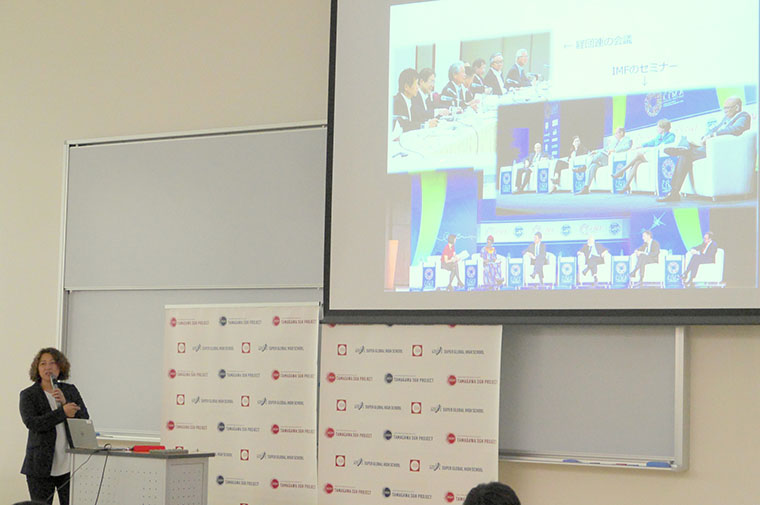
“It is very important for the public to think about how the audience sees from outside when we say “we will hold a conference with such participants.” said Mr. Sekioka.
The words that she used, taken from her real life feelings experiences were clear to every student and were very persuasive.
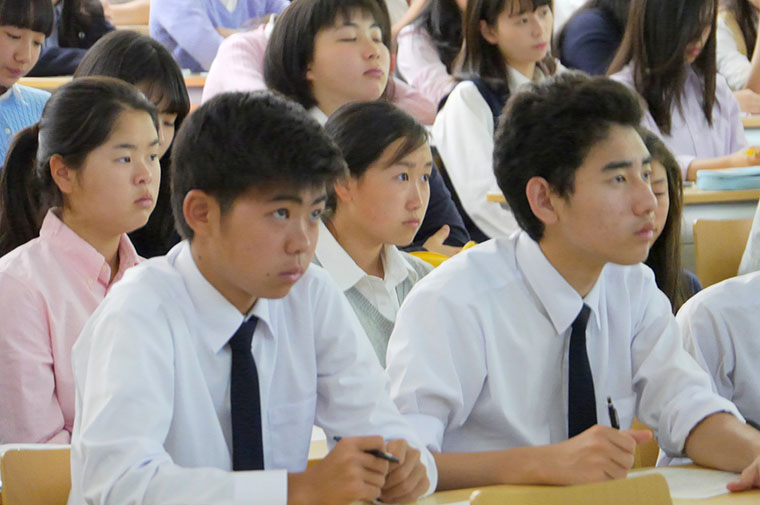
In the question-and-answer session after the lecture, students asked questions frankly. Ms.Sekioka answered their questions based on objective facts gently, and students were able to gain a deeper understanding of the meaning of the lecture.
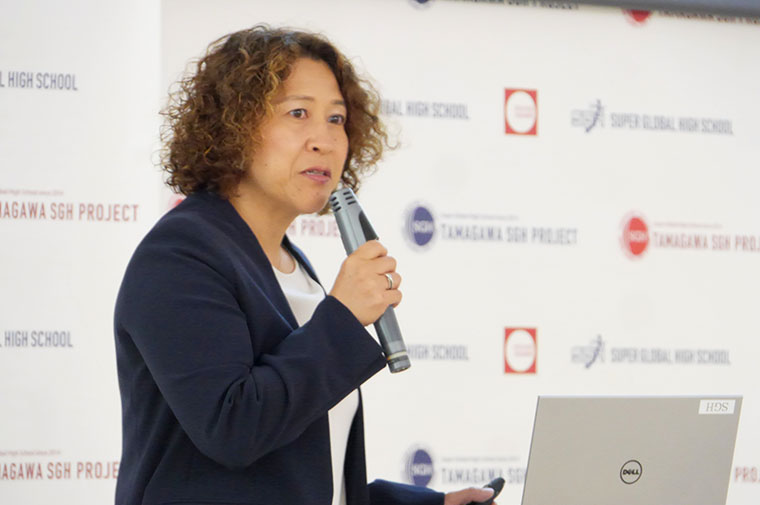
The students were greatly inspired by the presence of a person who is active at the front lines of international organizations. Ms. Sekioka’s eyes shone with strength polished by her experience and her viewpoint of “as a public servant” backed up the experience the students had and expanded their view of a “global career”.




